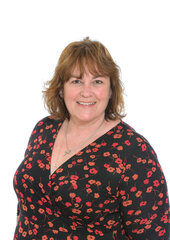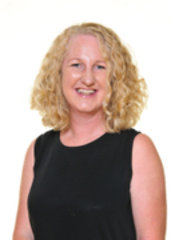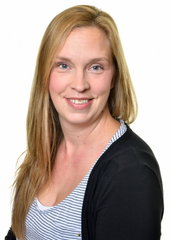Safeguarding Team

Mrs Karen Shawyer
Head Teacher

Mrs Helen Tucker
Deputy Head

Mrs Hannah Thompson
SENCo

Miss Sarah Tilling
Senior Leader

Mr Antony Brown
Senior Leader
All adults working or visiting this school have a duty of care towards all children. This means you should act at all times in a way that is consistent with their safety and welfare.
If you have a concern about a child it is your responsibility to share the information promptly with the Designated Safeguarding Lead (DSL) who is the Head teacher, Karen Shawyer or the Deputy Designated Safeguarding Leads who are Helen Tucker (Deputy Head), Hannah Thompson (SENCo) Sarah Tilling (Senior Leader) and Ant Brown (Senior Leader).
If you have a concern about a member of staff you need to share the information immediately with Karen Shawyer or Helen Tucker if Karen Shawyer is not on site.
- Millbrook Primary School has a policy of no mobile phones to be used near/with children.
- Staff and visitors must not comment, or participate with any comments, relating to Millbrook Primary School on any Social Media sites.
National Domestic Abuse Helpline
Child Exploitation and Online Protection Centre
Safeguarding Documents
Here at Millbrook Primary School, Online Safety is always a top priority within the ever expanding use of technology both inside and outside of school.
Our aim is to provide children and parents , with an expert knowledge of the potential risks and benefits with the use of technology in the wider world and within the school setting and therefore be equipped to deal with any unwanted occurrences while accessing the world wide web on a wide range of electronic devices.
The new National curriculum states that by the end of KS1 children should be taught to: use technology safely and respectfully, keep personal information private; identify where to go for help and support when they have concerns about content or contact on the internet or other online technologies.
Also by the end of KS2 pupils should be taught to use technology safely, respectfully and responsibly; recognise acceptable/unacceptable behavior, identify a range of ways to report concerns about content and contact.
Staff and pupils within Millbrook Primary school will be planning and following lessons aimed at meeting these objectives with the aim of all children being able to explain how to be safe and secure while at home and in school.
To get an initial input on how to keep your child safe at home please see the resources at the bottom of this page from childnet’s website and relates links below. We will add more useful documents as they come available.
What is County Lines? Information for parents
How to report behaviour on Roblox
UK Safer Internet Centre Parental Guides
CLEVER NEVER GOES
has been developed to replace the out-dated ‘stranger danger’ approach.
Whilst child abduction is relatively uncommon, it’s important that children can recognise the potential signs of danger. Teaching children simply to avoid strangers doesn’t work. Most strangers will help rather than harm children. Conversely, it is often people known to children that pose the greatest threat.
Clever Never Goes moves the focus away from strangers and instead teaches children to recognise when someone (anyone) is asking them to go with them. We call this ‘Go Spotting’. In doing so, the programme aims to give children practical safety skills which they can use as they get older and become more independent.
It’s about safety – but it’s also about building children’s abilities to engage with the outside world, and giving parents the confidence to let them
Click this link to find out more about this approach CLEVER NEVER GOES
